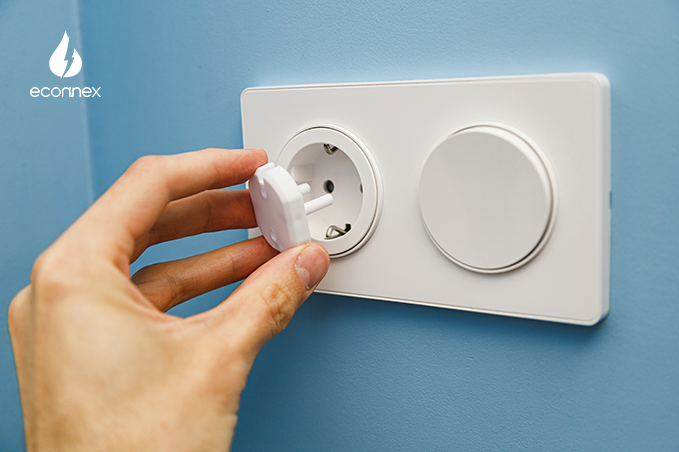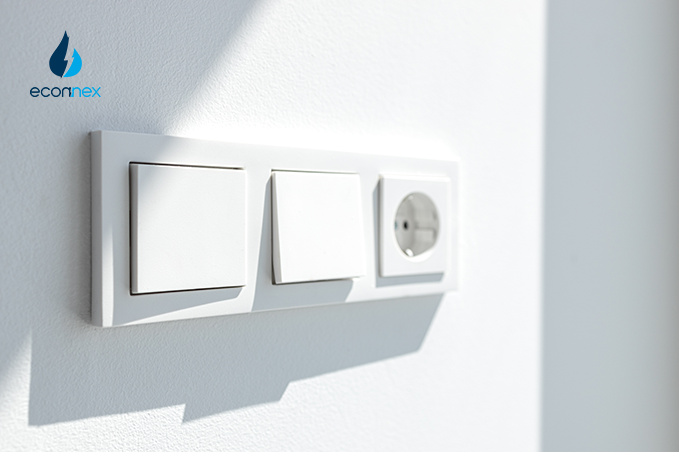Electrical safety is important to keep your home and family safe. Severe weather events are unpredictable.
To minimize discomfort, inconvenience, and danger you should consider preparing for the possibility of these events ahead.
But do you know when is the best thing to do this? Here are a few precautions to take:
Be Prepared:
You can minimize risks and dangers during and after severe weathers:
- Prepare Supplies- Put together a box essential/emergency kit with food, water, and supplies to last up to 72 hours in case you’re stuck without power or other utilities.
- Create a family emergency plan- Come up with a communications plan in case of an emergency in case, not all be together during bad weather. The plan should address where to meet, list emergency contacts and responsibilities for each person.
- Weatherproof your home– Clear away gutters, fix leaks, check the roof for loose tiles.
- Check Power lines- Make sure it’s clear from any obstruction like trees or other structures you might want to contact your utility company to have them checked out.
- Clean your yard- Cut-off any thin branches that could break during severe weather conditions, ask for professional’s assistance if branches are near power lines. Pack away or secure loose items that can be carried away by strong winds and damage property and power lines. Lock away your tools, secure outdoor furniture, clear debris in your yard.
- Electrical Equipment- Switch and unplug all electrical equipment before the event strikes.
- Surge Protectors- Have a surge protector installed on your electricity switchboard to protect your appliances and other electrical items in the event of a power surge.
- Locate switches– Make sure you know how to turn-off switches for electricity, gas, and water during an emergency.
- Switch of Solar Panels– Turn it off using the recommended safe isolation procedure. After the event, stay away from the system not until checked by a professional.
- Protect your animals- If you have pets that stay outdoors, make sure they are protected and secured. Consider bringing your pet inside your home or garage if severe weather is expected.
During the event:
Stay indoors during the severe weather event and keep warm and dry.
- Get to a safe place– Best is to stay inside, if you’re stuck outside, know the best practices to stay safe. If you’re on the road, stay away from watercourses, power lines, and trees, and stay in your car. Small structures do not offer adequate protection like stand-alone public restrooms so find an established building grounded with plumbing and electrical systems. If there’s no shelter available, crouch on the ground, tuck your head and cover your ears. Avoid contact with electrical equipment, water, and plumbing as much as possible, including sinks, faucets, and baths.
- Pay attention to emergency broadcasts– Tune in to local radio or TV stations to stay up to date and have the information you need to keep your family safe.
- Avoid using electronics– If you must use a phone, use a cordless phone or mobile phone. You can also use surge protector but it doesn’t offer adequate protection in the case of a direct lightning strike. In general, it’s safest to unplug your electronics.
- Be ready to move– If flood waters reach your home, move all electrical equipment to higher levels. If electrical circuits or equipment get wet, turn off the power at the fuse box but never walk through water to access it.
After the event:
Carefully assess the damage and take it slowly when cleaning up, staying safe is still the top priority after a severe weather event
- Stay connected– Keep the radio or any source of communication to stay up to date with any further warnings.
- Stay away from fallen power lines– Stay away from fallen power lines and report them to your local electricity distributor. Look out for concealed power lines, such as those under fallen trees.
- Stay away from water– If you have a flooded lower level, don’t come in contact with the water unless you know it’s safe. Water conducts electricity and touching it could give you an electric shock.
- Stay away from electrical items– Don’t touch any electrical signs, street lights, cables or conducive materials unless it’s completely safe. Have professionals to do repairs on such as an electrician for electrical repairs.
- Replace Supplies – Replace used supplies in the emergency kit to be prepared for the next severe weather event.
Protecting your family from any form of harm is important. With, Econnex you are also important and we want to give the best to you and your family. We offer plans that fit your needs and works within your budget. Find out more about our plans here.




